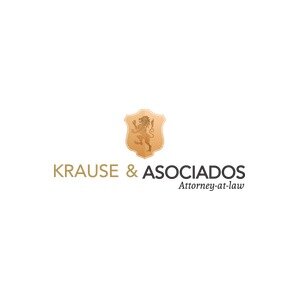Best White Collar Crime Lawyers in Puerto Plata
Share your needs with us, get contacted by law firms.
Free. Takes 2 min.
List of the best lawyers in Puerto Plata, Dominican Republic
About White Collar Crime Law in Puerto Plata, Dominican Republic
White Collar Crime in Puerto Plata, Dominican Republic, encompasses a range of non-violent criminal offenses that are typically financially motivated and involve deceit, fraud, or breach of trust. The city, known for its vibrant tourism and commerce, also faces challenges related to financial crimes, especially with increasing technological advancements. Common white-collar crimes include embezzlement, money laundering, fraud, bribery, insider trading, and tax evasion. Understanding local laws and regulations is crucial for individuals and businesses to navigate these complex legal situations.
Why You May Need a Lawyer
Individuals and businesses may need a lawyer to assist with various white-collar crime-related issues. Common scenarios include being accused of or charged with a financial crime, conducting an internal investigation into suspected fraudulent activities, facing regulatory inquiries or audits, requiring compliance advice to prevent legal violations, or seeking to recover losses from a fraud or scam. A skilled lawyer can provide guidance, representation, and negotiation on behalf of the accused to ensure the protection of their legal rights.
Local Laws Overview
The legal framework governing White Collar Crime in Puerto Plata, as well as the rest of the Dominican Republic, is laid out in both the Penal Code and specific financial and anti-corruption laws. Key legal provisions include laws against embezzlement, corporate fraud, identity theft, and money laundering, with penalties ranging from fines to imprisonment. The Dominican Financial and Monetary Law also regulates financial crimes, ensuring the banking and financial sectors remain compliant. It's critical to stay informed about these laws to prevent and efficiently address any allegations of white-collar crime.
Frequently Asked Questions
What constitutes a white-collar crime in Puerto Plata?
White-collar crimes are non-violent offenses typically involving deceit, fraud, or breach of trust, such as embezzlement, fraud, tax evasion, and money laundering.
How serious are white-collar crimes legally in Puerto Plata?
White-collar crimes are taken seriously, with potential penalties including hefty fines, restitution to victims, and imprisonment, depending on the severity of the offense.
Can I face both civil and criminal penalties for a white-collar crime?
Yes, individuals accused of a white-collar crime can face both civil and criminal penalties. Civil cases may involve restitution or compensation, while criminal cases can lead to fines and imprisonment.
What is the role of a defense lawyer in white-collar crime cases?
A defense lawyer represents the accused, builds a defense strategy, provides legal advice, negotiates plea deals, and advocates for their client's rights throughout the legal process.
Can businesses face criminal charges for white-collar crimes?
Yes, businesses, as legal entities, can be charged with white-collar crimes, leading to penalties that may include fines, revocation of licenses, and other sanctions.
How can I avoid being a victim of white-collar crime?
To avoid becoming a victim, individuals and businesses should conduct due diligence, maintain robust internal controls, stay informed about local laws, and engage in regular audits and compliance checks.
Are there specific agencies that investigate white-collar crimes in Puerto Plata?
The Dominican Republic has several agencies, such as the Financial Analysis Unit and the Specialized Prosecutor's Office for the Prosecution of Administrative Corruption (PEPCA), responsible for investigating financial crimes.
What should I do if I suspect someone of committing a white-collar crime against me?
If you suspect white-collar crime, collect relevant evidence, document all suspicious activities, and consult a lawyer to explore legal actions and report the offense to relevant authorities.
What is money laundering, and why is it a significant concern?
Money laundering is the process of disguising illegally obtained funds to make them appear legitimate. It is a major concern due to its impact on the integrity of financial institutions and its association with other illegal activities.
How can expatriates protect themselves from white-collar crimes in Puerto Plata?
Expatriates should seek professional legal advice, understand local laws, engage in secure financial practices, and remain vigilant in their business and personal transactions to protect themselves from white-collar crimes.
Additional Resources
For further assistance, individuals can reach out to the following resources:
- Dominican Financial Intelligence Unit (UIF): Oversees financial investigation and monetary transactions.
- Procuraduría General de la República: Government body responsible for overseeing legal affairs, including white-collar crime.
- Junta Monetaria: Offers guidance on monetary policies and regulations related to financial crimes.
Next Steps
If you require legal assistance in white-collar crime matters, consider the following steps:
- Consult with a specialized lawyer: Seek out legal professionals who have experience in white-collar crime within the Dominican Republic.
- Gather all relevant documentation: Collect evidence, records, and any related information that may be pertinent to your case.
- Understand your rights: Ensure you're aware of your legal rights and obligations when facing accusations or pursuing a case.
- Initiate contact with legal authorities: Report any suspected crime or rights violations to the appropriate agencies.
- Stay informed: Keep abreast of any developments in local laws and legal procedures related to white-collar crime.
Lawzana helps you find the best lawyers and law firms in Puerto Plata through a curated and pre-screened list of qualified legal professionals. Our platform offers rankings and detailed profiles of attorneys and law firms, allowing you to compare based on practice areas, including White Collar Crime, experience, and client feedback.
Each profile includes a description of the firm's areas of practice, client reviews, team members and partners, year of establishment, spoken languages, office locations, contact information, social media presence, and any published articles or resources. Most firms on our platform speak English and are experienced in both local and international legal matters.
Get a quote from top-rated law firms in Puerto Plata, Dominican Republic — quickly, securely, and without unnecessary hassle.
Disclaimer:
The information provided on this page is for general informational purposes only and does not constitute legal advice. While we strive to ensure the accuracy and relevance of the content, legal information may change over time, and interpretations of the law can vary. You should always consult with a qualified legal professional for advice specific to your situation.
We disclaim all liability for actions taken or not taken based on the content of this page. If you believe any information is incorrect or outdated, please contact us, and we will review and update it where appropriate.










